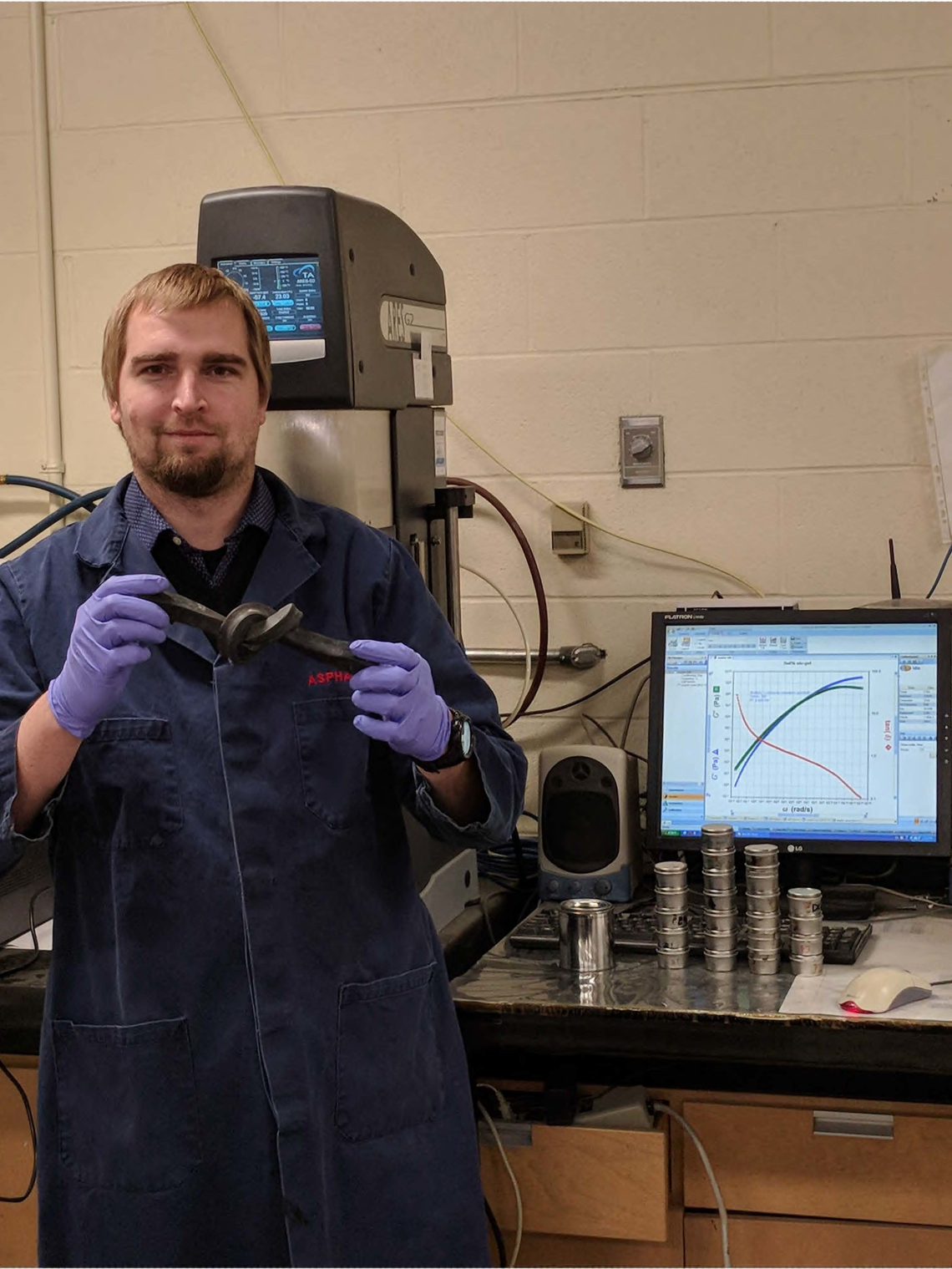Endowed Research Chair in Bituminous Materials
Dr. Martin Jasso, PhD, is an assistant professor in the Department of Civil Engineering and the Department of Chemical and Petroleum Engineering at the Schulich School of Engineering, as well as holder of the Endowed Research Chair in Bituminous Materials. Over the last decade, Dr. Jasso has dedicated his research to finding the right combination of materials to make a road surface that can handle Canada’s weather and heavy traffic. If the asphalt is too hard, cracks will appear. If it’s too soft, the road will deform.
“We are trying to find modifiers and their possible combination in order to develop paving asphalt with optimum environmental and engineering properties,” Dr. Jasso says. “We also want to optimize the technologies we have available to us.”
Road infrastructure is one of the largest expenditures at all levels of Canadian government — far surpassing tens of billions of dollars annually. The transportation sector is one of the most significant factors of each region’s economy, with the road system one of the largest public assets, worth $170.1 billion (2007 – approximately 59 per cent of total public assets in Canada). From this perspective, there will always be a requirement for high-quality, flexible pavements.
Canada has large reserves of heavy crude oil and oilsands, plus the technical expertise and manufacturing capability required for producing high-quality asphalt products. Continuing development of these materials will meet the future needs of the transportation and construction industries in Canada and abroad. Dr. Jasso provides a focal point for advancing the science and engineering of asphalt materials, maintaining the top Canadian research centre in bituminous materials with state-of-the art laboratories as the focal point for the technical development needs of the asphalt industry. He plans to expand research into asphalt emulsions and investigate the environmental impact of asphalt materials, both neat and modified, that are produced from different crude oil streams and different manufacturing technologies.
Recently, the Natural Sciences and Engineering Research Council of Canada (NSERC) awarded UCalgary $750,000 for asphalt research, matching research funds provided by Husky Energy. The NSERC/Husky Energy/Bituminous Materials Chair Alliance grant is a five-year endeavour led by Dr. Jasso.
Dr. Jasso is now focused on answering big questions about asphalt. What are the best modifiers to use? Which ones age well? How realistic is it to use them on a large scale? Cost will be another issue, especially with governments at all levels talking about fiscal restraint.
“When you add modifiers into asphalt, of course, the initial costs will be a little higher,” Dr. Jasso admits. “But you can still use the same paving technology without problems, and you won’t have to worry about patching or repaving so frequently. You do save money in the longer term.”
Another added benefit, he adds, is that fewer repair jobs will mean the asphalt is more environmentally friendly and safer for motorists.
The outcomes of this research program, and the partnership with Husky Energy will create new opportunities for:
- improving the existing road network and construction of new roads using materials with enhanced engineering properties;
- increased use of post-consumer plastic waste in road construction;
- extension of pavement service life;
- increased percentage of recycled pavements in new construction; and
- decreased energy use and emissions during road construction.
Cenovus Energy Inc. leads the development of polymer modified asphalt in Canada and will continue pursuing this trend also in the future. The proposed NSERC Alliance project presents a new avenue of research to address these challenges.

Dr. Martin Jasso, PhD.
